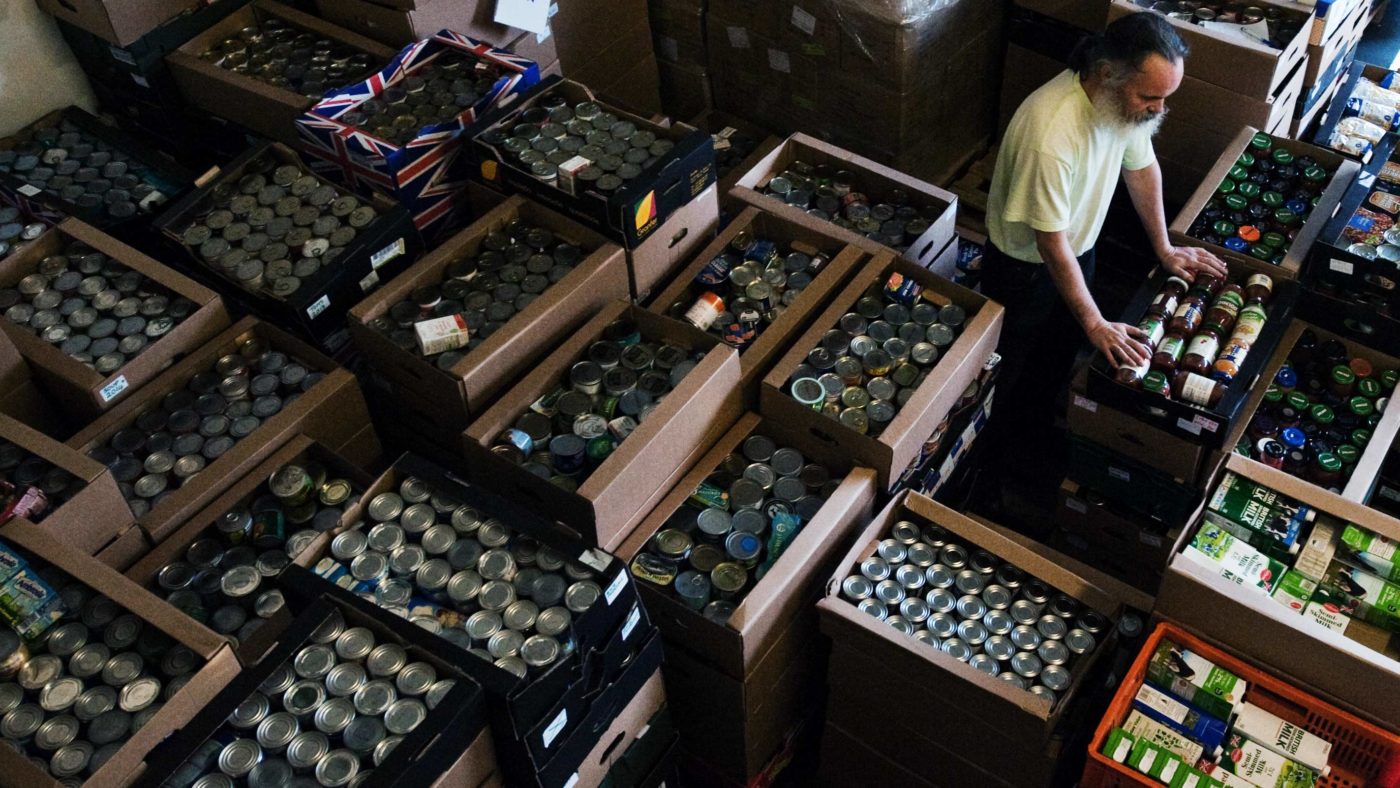Allow me to introduce you to an intensely conservative body – the Trussell Trust and the network of food banks around the land. They certainly don’t sound very conservative, given their incessant clamour that government must do something. But they are – and in the very best possible manner.
Some food banks have been running low on supplies. And those running short have been sending out messages on social media, Twitter and the like, asking for stock. This has arrived, in the required quantity, in time, with no compulsion, taxation or state involvement. Hence why I would describe it as a conservative movement.
We’re told, endlessly that this food network exists because of austerity – that the need is something new. But this doesn’t pass the laugh test for anyone rich in maturity. The British state has always been lousy at paying benefits on time and in full – even before Mrs Thatcher, I recall people waiting weeks and weeks for unemployment benefits, which is why we would chip in to keep them fed.
The Trussell Trust itself says that the major single reason for referral to their network is that government simply isn’t very good at handing out free money. This hasn’t changed over the decades.
What has changed is the technology of the food bank itself. In the US, there is a remarkably robust sense of local community problems being something usefully solved by local community action. The same idea – to ask for voluntary donations which can then be stored and distributed to those in need – has arrived upon our shores.
The Trussell Trust was running two food banks in 2004, and the network has massively expanded since then. In 2004, Gordon Brown was still handing out the cash like an inebriated matelot. It’s not austerity that’s the problem here; it’s the inefficiency of a centralised bureaucracy in dealing with individual problems and in detail.
So, in one sense, we should be celebrating the rise of the food bank network. Here we’ve a long running and pernicious problem to which a solution has been found. Government’s not very good at the £10-here-and-£20-there problems, and the very bureaucracy of government seems to be the cause of many of them. We’re solving one of these problems.
But this leads us to question why this is a conservative (but not Conservative) movement and system of organisation. The clue to that being Edmund Burke’s “little platoons”. There has been no governmental nor societal mobilisation of the populace to achieve this, Simply a realisation that a problem, previously seemingly intractable, can now be solved.
So, it is being solved entirely through the voluntary action of individuals and groups and purely from the goodness of their hearts. And, again, note, in reaction to the incompetence of government and the state.
The alleviation of poverty is a good idea, the alleviation of hunger a great one. That it’s being done through entirely voluntary interaction of a free people is indeed a conservative moment and victory.
You can, if you prefer, adopt the rather more lefty description of community spirit and all that – but that the people unadorned solve a government-created problem does rather rub against the grain of the standard British leftism, doesn’t it?


